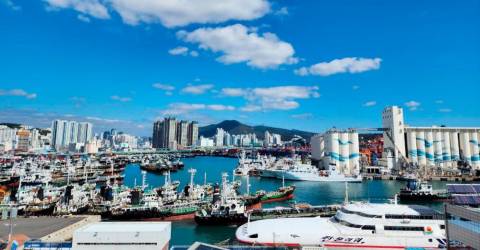BUSAN: The 2030 World Expo in Busan is expected to generate a 61 trillion won (US$42.5 billion) economic impact for South Korea and propel its second-largest city to become a global hub across multiple sectors. (US$1=RM4.72)
Busan Metropolitan City’s overseas expo outreach division director Lee Seung Woo said the World Expo host, expected to be announced in November 2023, will also indirectly create jobs for locals and attract investment opportunities from abroad.
“Around 35 million people from 200 countries are expected to visit the expo over the course of six months. The economic effects (among others) are worth 61 trillion won and 500,000 job opportunities.
“We expect the effect will be three times greater than that of the Olympics (held for two weeks) and the World Cup (one month). This will ultimately reinvigorate the local economy across sectors,” Lee told Bernama recently.
The South Korean government and the city of Busan officially submitted its proposal to host the World Expo 2030 on Sept 7 to the Bureau International des Expositions (BIE) secretariat in Paris with the theme “Transforming our World, Navigating to a Better Future”.
The plan includes a carbon-neutral expo as a differentiating strategy to beat competitors Italy and Saudi Arabia.
Creating a hub
The current southern port city is working on redeveloping North Port City in phases to host the event, Lee said.
Soon-to-be-completed in 2024, the venue will stand tall as a new maritime industrial hub, with international exchanges, finance, business and research and development facilities.
“Busan’s profile as a hub for finance, logistics, and maritime industries will improve. As a result, Busan will truly become a global hub city.
“Various business and tourism-related facilities will also be built, among them the Busanjin Terrace, a platform for Eurasian youth; a Central Activity Zone (CAZ) as a business district, and convention facilities related to the meeting, incentive travel, convention, exhibition (MICE) industry,” Lee said. The entire World Expo 2030 in Busan will cost around five trillion won (US$3.52 billion).
In Seoul, Busan World 2030 Expo bidding committee head of strategy and planning, Jung Hong Gon, said Busan’s North Port is one of the most important location to contribute to the South Korean economy.
The country’s economy is heavily dependent on exports and a significant portion is via North Port. That site also is the best place to symbolise the “transformation of our world” — the expo’s chosen theme.
“If you think about other locations where an entire area has to be developed from scratch to host a global event, North Port is economically and environmentally viable because most of the existing port can be utilised,” Jung said.
“The port is located where the old city centre meets the sea, allowing visitors to enjoy the charms of nature and a metropolis all at once. This is one of the reasons why Busan is the best place to host the expo,” he added.
Jung said the existing port will be redeveloped for the expo and the rest of the work will be completed post-expo.
South Korea’s corporate giants — Samsung, SK, Hyundai Motor, LG and Lotte, among others — have joined the nationwide campaign to promote Busan’s bid.
Global superstar sensation BTS was appointed as public relations ambassador in June this year to promote the city’s projects. The country hosted expos in Daejeon and Yeosu in 1993 and 2012, respectively.-Bernama
